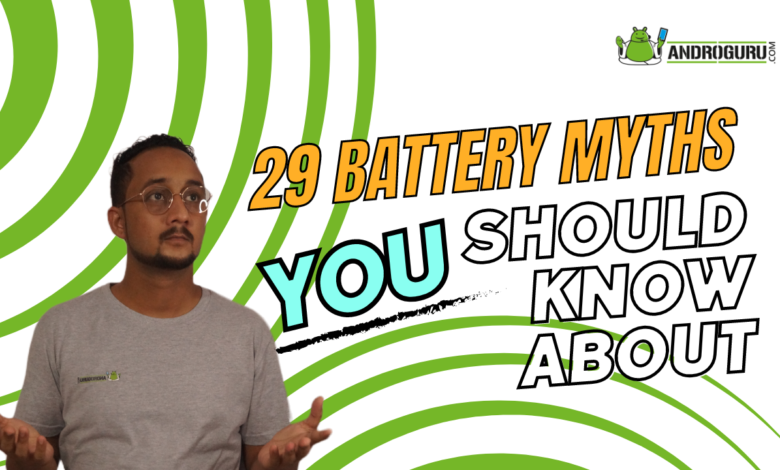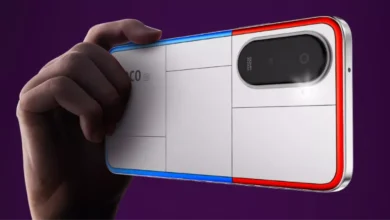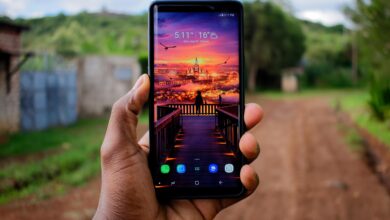29 Common Misconceptions about Your Android Smartphone
Separating Fact from Fiction: Debunking common Android smartphone misconceptions.

In the vast world of Android smartphones, there are plenty of misconceptions that often lead to confusion and misinformation.
From battery myths to software beliefs, it’s time to debunk these common misconceptions and set the record straight.
So, let’s dive in and explore the truth behind these fascinating but sometimes funny misunderstandings about our beloved Android devices.
Myth: Closing apps in the background improves battery life.
Reality: Android manages background apps efficiently, and closing them actually requires more resources.
Myth: Charging your phone overnight damages the battery.
Reality: Modern smartphones have advanced charging circuits that prevent overcharging, so feel free to charge overnight without worry.
Myth: More megapixels mean better camera quality.
Reality: Megapixels are just one factor; image quality depends on various factors like sensor size and software optimization.
Myth: Task killers or RAM boosters enhance performance.
Reality: Android is designed to manage RAM effectively, and third-party task killers may interfere with system processes.
Myth: Using off-brand chargers will damage your phone.
Reality: As long as the charger meets safety standards, using off-brand chargers should not harm your device.
Myth: Force-closing apps improves performance.
Reality: Android is designed to manage apps efficiently, and force-closing them may actually slow down your device as they need to reload when reopened.
Myth: More cores in a processor mean better performance.
Reality: The number of cores is just one aspect of processor performance. Factors like architecture and clock speed also play crucial roles.
Myth: Rooting your phone is illegal.
Reality: While it may void your warranty, rooting your phone is legal in most countries as long as you’re not using it for illegal activities.
Myth: Using a task killer saves battery.
Reality: Task killers can hinder performance and battery life by constantly killing and restarting apps in the background.
Myth: Keeping your phone plugged in damages the battery.
Reality: Modern smartphones have built-in mechanisms to prevent overcharging, so leaving your phone plugged in is generally safe.
Myth: Closing all recent apps improves performance.
Reality: Android’s recent apps list contains cached app states, and closing them manually can slow down app launching next time.
Myth: Antivirus apps are necessary for Android.
Reality: While it’s good to have antivirus software, if you download apps from trusted sources, keep your device updated, and practice safe browsing, the risk is minimal.
Myth: Leaving Wi-Fi and Bluetooth on drains battery.
Reality: In newer devices, the battery impact is negligible when Wi-Fi and Bluetooth are left on, especially when not actively connected.
Myth: Task killers improve battery life.
Reality: Task killers can actually harm battery life by constantly terminating and restarting apps, which consumes more power.
Myth: Disabling animations makes your phone faster.
Reality: Animations are an integral part of the user experience, and disabling them won’t significantly enhance performance.
Myth: Clearing cache regularly improves performance.
Reality: Clearing cache may free up some storage space, but it doesn’t necessarily boost performance on modern Android devices.
Myth: Using a live wallpaper drains battery quickly.
Reality: Live wallpapers can have a slight impact on battery life, but the difference is usually minimal unless the wallpaper is excessively resource-intensive.
Myth: Charging your phone overnight damages the battery.
Reality: Modern smartphones are equipped with charging circuits that prevent overcharging, so leaving your phone plugged in overnight is generally safe.
Myth: Keeping your phone in the freezer cools it down faster.
Reality: Extreme temperature changes can damage your phone, so it’s best to let it cool down naturally instead of resorting to extreme methods.
Myth: More megapixels mean better camera quality.
Reality: While megapixels contribute to image resolution, other factors like sensor quality, image processing, and lens play a significant role in overall camera performance.
Myth: Forcefully stopping system apps improves performance.
Reality: System apps are crucial for the functioning of your device, and force-stopping them can lead to instability and unexpected behavior.
Myth: Battery calibration apps enhance battery life.
Reality: Battery calibration apps are unnecessary as Android’s built-in algorithms already handle battery calibration effectively.
Myth: You need to fully discharge your battery before charging it.
Reality: Modern lithium-ion batteries do not require full discharge and can be charged at any level without affecting their lifespan.
Myth: Using a third-party launcher slows down your phone.
Reality: While some third-party launchers may introduce a slight overhead, the impact on performance is usually negligible on modern devices.
Myth: Keeping your phone on airplane mode charges it faster.
Reality: Airplane mode disables cellular and Wi-Fi connections, but it doesn’t affect the charging speed of your device.
Myth: Overnight app updates improve device performance.
Reality: App updates are primarily focused on bug fixes and new features, but they don’t have a direct impact on the overall performance of your device.
Myth: Charging your phone with a different charger damages the battery.
Reality: As long as the charger is from a reputable brand and matches the power requirements of your device, using a different charger won’t harm the battery.
Myth: More RAM always translates to better performance.
Reality: While RAM is important for multitasking, having excessive RAM doesn’t necessarily result in better performance if the software isn’t optimized to utilize it effectively.
Myth: Force-closing background apps improves battery life.
Reality: Android is designed to manage background apps efficiently, and force-closing them can actually consume more battery power as they need to restart when reopened.
Myth: Smartphones emit harmful radiation that causes health issues.
Reality: The radiation emitted by smartphones falls within safe limits regulated by authorities, and there is no substantial evidence linking smartphone use to significant health risks.
By shedding light on these misconceptions, I hope it has enhanced your understanding of Android smartphones and you will be able to make more informed decisions, such as buying a new Android smartphone or even getting rid of unwanted malware. Remember, it’s always good to separate fact from fiction in the world of technology!












